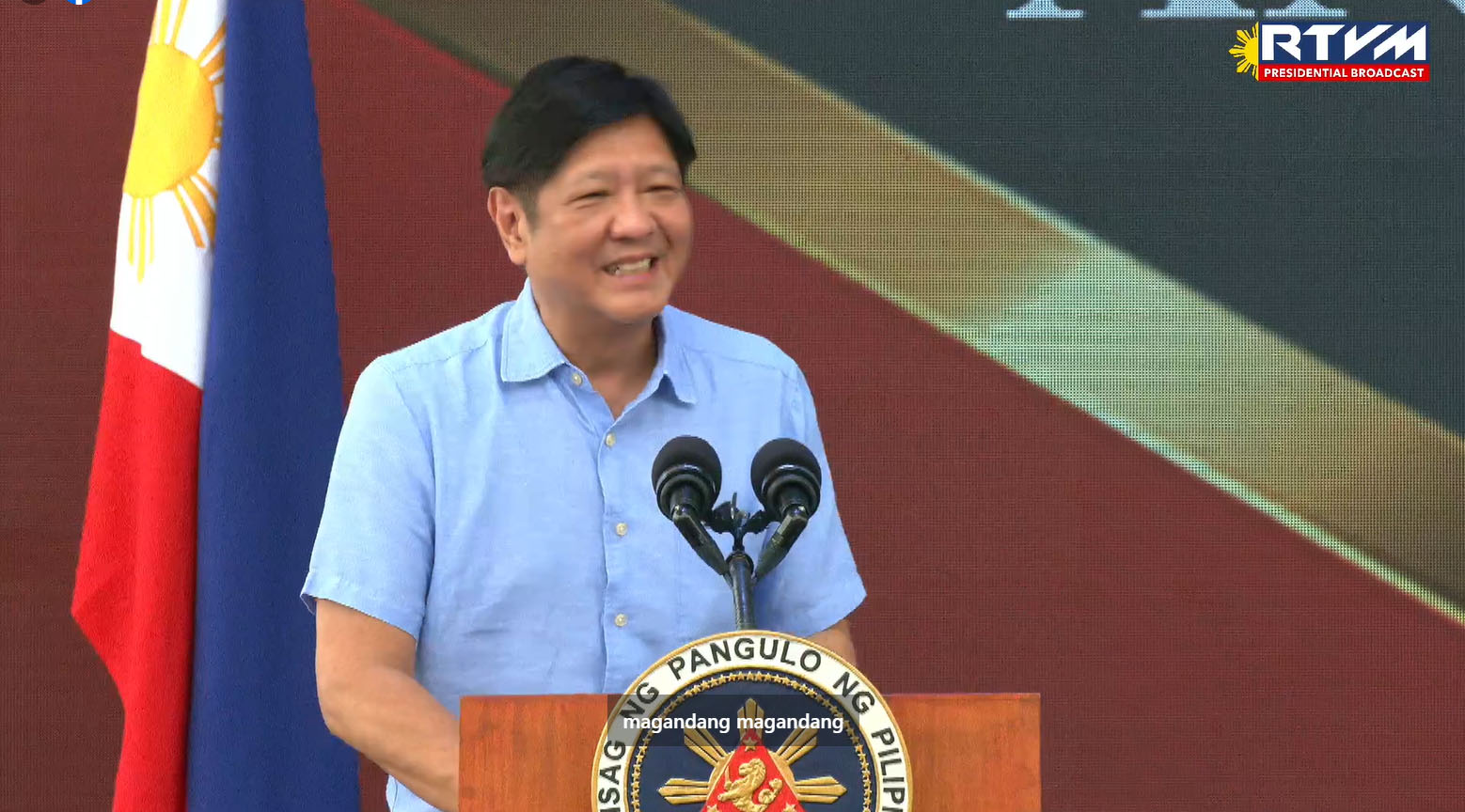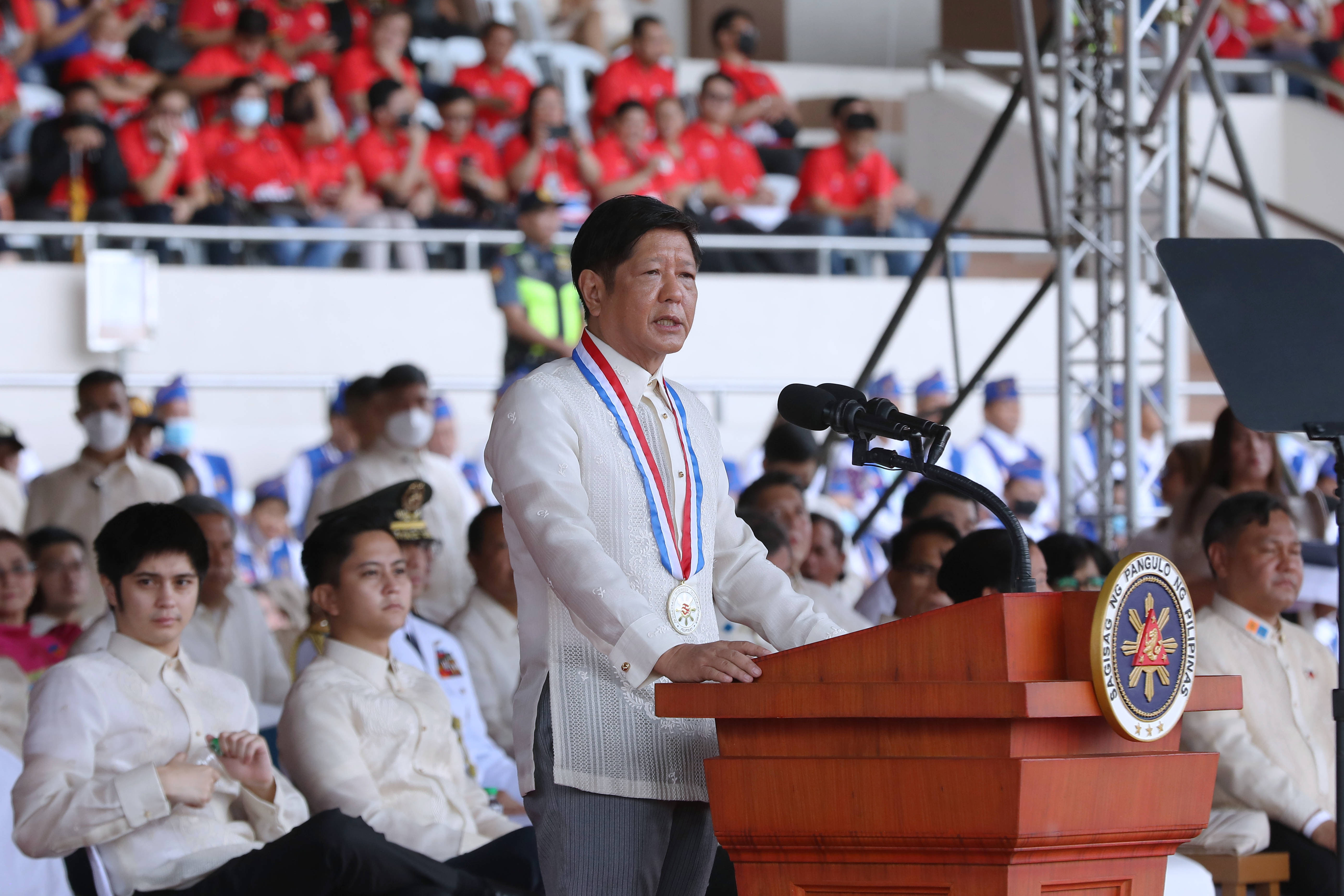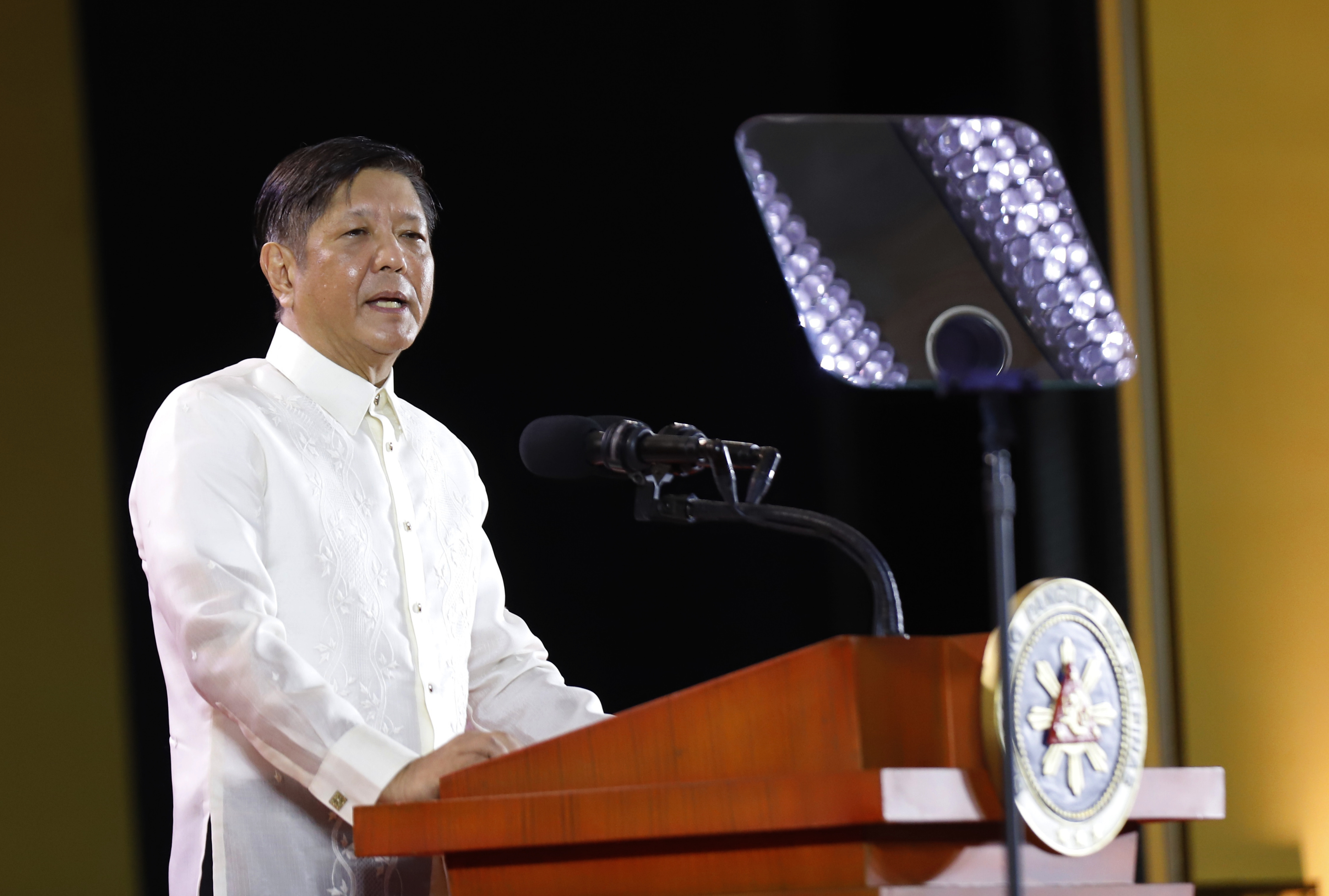Thank you to Secretary Fred Pascual for your introduction. [Please take your seats.]
Secretary Benny Laguesma of the DOLE; Secretary Anton Lagdameo; Senator Loren Legarda who has been playing a very important role in the legislature in getting all of these trade agreements ratified by the Senate. So that very important work that you have done, Senator Loren, we all thank you very much. [applause] Mr. Sergio Ortiz-Luis, the President and CEO of the Philippine Exporters Confederation, Inc.; Mr. George Barcelon, President of the Philippine Chamber of Commerce and Industry; my fellow workers in government; distinguished guests; ladies and gentlemen, good morning.
At this International Trade Forum, we mark an important milestone not only in charting the direction that this Administration will take, but in our collective march towards the ambition to become a prosperous, inclusive and resilient society by 2040.
With the signing of the Philippine Export Development Plan (PEDP), we formally begin the implementation of the key strategies to nurture the growth of our local export industry for the next six years, to transform it into a strong and highly competitive pillar of our economy.
It is correct that the DTI views our export industry as an “economic lynchpin”. Indeed, this distinct sector holds together what could appear to be disparate components of our economy, but make them work in such well-coordinated and efficient manner so as to achieve a higher and practical objective.
A major strategy of this Administration’s Philippine Development Plan is focused on the country’s production sectors. It is very well echoed by the theme of this event: "Empowering Philippine Industries".
The desired strategy will be transformative. That the sectors will be able to generate: high-quality and stable employment opportunities; highly competitive products and services; and, of course, higher revenues. Dynamic innovation within the sectors will be at the heart of this transformation.
The export industry is crucial and indispensable to this developmental strategy. It is simply because these objectives are the be-all and the end-all of the export industry.
The growth of our very own export industry holds the key to our attainment of national development targets. So cognizant of our pivotal role, we have to make sure that this “economic lynchpin”, that we are counting on for so much, will be properly and firmly in place.
Borne by the collaborative efforts of our export community, the PEDP embodies a comprehensive, multi- faceted, and pragmatic plan that fleshes out the specific strategies to achieve the broad targets of this Administration’s Agenda.
The PEDP contains a critique of the overall business climate and enabling environment. Thus, we shall not only be informed by global and emerging trends, but also guided by lessons from the past.
It is true our total exports are growing. However, within the larger context of international trade, we fall behind our ASEAN neighbors. We still have to grapple with critical issues, such as comparatively less-diversified export portfolio and trade barriers and frictions.
I came across a rather eye-opening statistic when we were planning on and putting together this export plan for the Philippines. In that 40% of all our exports are only one product. So the level of diversification is something that we have to look at and we have to improve in the coming years.
But we also recognize that there is a great potential in the sector; no less than $49-billion worth of revenues remains untapped and unlocked by the industry.
So this Plan acknowledges what our strengths are and where our competitive market advantages lie.
It has become clearer to us what the evolving export landscape looks like now. Our role in the global marketplace is becoming more apparent. We are more aware about the normal exigencies of trade and commercial dealings in our relations with other countries.
We certainly recognize the invaluable role of MSMEs, and the crucial influence being exerted upon the export sector by the overall business climate.
But the Plan also maps out our weaknesses, where inefficiencies occur, the inhibitive factors within the sector. So, the Plan lays down the corresponding strategies on how to precisely address these issues.
Perhaps this is the elephant in the room. We have had several good export plans over the many decades; but nonetheless we are still playing catch-up in the global scene. It is high time that we confront and address these issues head-on.
Resounding in the Plan is the necessity for heightened government support. This calls for a host of vital government interventions, such as infrastructure, greater ease in doing business, promotion and marketing, financing, even legislative initiatives, amongst others.
Considering the magnitude of the task, we can only achieve this through a whole-of-government, whole-of-nation approach. It’s a holistic approach that calls for strategic coordination, with partnerships and linkages within the private sector, with the government agencies, and of course, the international community. That is the only way that we see moving forward.
As envisioned under the PEDP, achieving more than double our current level of exports is, in fact, a realistic target. We can transform the Philippine export industry into a significant economic engine that will generate over a million high-quality and sustainable jobs. The Philippines can establish itself as an “agile export powerhouse” by the year 2028.
So while we speak of the importance of the holistic approach, we also highlight the Regional Comprehensive Economic Partnership Agreement or RCEP, which came into force this month. This is another significant milestone in our nation’s export agenda. With a 15-country market coverage, this will expand further the market reach of our exported goods. The coverage of RCEP covers, in terms of individuals, over 2 billion individuals that are involved in this trade agreement.
Our participation in these trade agreements not only deepens our economic integration, but also demonstrates our global competitiveness. Hence, we must continue to forge these vital agreements and preferential systems, and also maintain our good standing in, and seek renewal, of existing ones, including those with the EU and the US.
However, the opening of these markets on both the supply side and on the demand side has an implied premise and it is that we need to prepare ourselves to compete in the global market. And that is where the partnership between the private sector and the government will be very important.
We in the government have recognized that it is not something that happens itself – because when we look at the other economies, especially around our region, the success of their economies, the success of their trade, the success of their exports did not come about by accident. It was a planned progression to the point where they are now.
And once again, when we look to the examples of the successes that are around us, then we see that the partnership between the national government and the private sector is crucial. And our part that we play, I believe, is the essential part that government will have to play is to support private sector so that we can say that we have… Now that we have opened all of these trade agreements and we have opened all of these markets for our exporters, that we must help all of the exporters prepare to compete. And that is the role we believe we must play.
The private sector knows what to do. The private sector knows what needs to be done so that they will compete. And in that regard, that is where the partnership becomes particularly important because we in government need to support those needs and those challenges that the private sector is facing.
So all in all, the PEDP and the favorable developments thus far, we continue to be optimistic about the bright future our local export industry is headed for.
But as with any other plan, everything will come down to its effective and efficient implementation. So, together, with a whole-of-nation approach, let us once again declare our slogan: LET’S MAKE IT HAPPEN.
We will reinvigorate the Export Development Council (EDC) because it can serve as a proactive forum and effective command center for the efficient implementation of this Plan, the monitoring of milestone accomplishments, and the systematic pursuit of our desired multi-sectoral approach.
Local and international trade fora, such as this one, will also be instrumental to what we are trying to achieve. So, more than a one-off convention, these fora should serve as knowledge platforms and sounding boards for significant developments and issues affecting the industry.
So I once again call on the private sector and the entire export community to continue to invest their faith and energies and resources in the industry. We also send a message of goodwill to our foreign trade partners and the international community: the Philippines will ever be a reliable partner.
Finally, we acknowledge the efforts of those who contributed their wisdom, expertise, and experience in the formulation of the PEDP, as well as in the success of the RCEP thus far.
However, the task is not over. We all look forward to the full and effective implementation of the PEDP, and the great rewards that it promises to bring to our country.
The future of the Philippines Industries will only be as good as the people who work hard to bring us there. Let us be those people who will do just that.
Mabuhay ang industriya ng export ng ating bansa!
Maraming salamat po at magandang umaga sa inyong lahat! [applause]
--- END ---
Watch here: Speech by President Ferdinand R. Marcos Jr. at the DTI International Trade Forum
Location: Shangri-La The Fort, Bonifacio Global City in Taguig City




